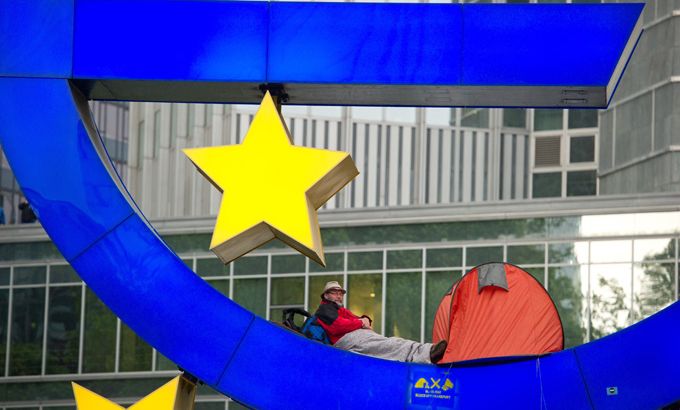
Will the eurozone collapse?
The head of the European Central Bank has warned that the currency union has become unsustainable.
Mario Draghi, the head of the European Central Bank (ECB), has told European politicians that they should do a lot more to tackle the debt crisis.
|
“What we are expecting, in particular, is a next step of budgetary, fiscal, economic integration in order to get out of this crisis …. The situation where each country can decide on its own and block the system has shown its limits.” – Jessica Chamba, the vice-president of the European Movement |
He says the current setup is unsustainable and has urged member states to take immediate action towards developing a clear vision for the next few years.
Draghi warned that the structure of the euro currency union has become unsustainable and criticised political leaders, who, he said, had been slow to respond to a European debt crisis now well into its third year.
“Can the ECB fill the vacuum or lack of action by national governments on the structural front? And again the answer is no, structural reforms don’t have much to do with monetary policy,” Draghi said, adding: “Can the ECB fill the vacuum left by the lack of euro area governance? And the answer is no. So, let’s ask: What can we do now? What is the next step? The next step is basically for our leaders to clarify what is the vision for a certain number of years from now.”
|
“I don’t think this [the single currency] has ever really been a project so much about the economic logic …. It is really a political project and always has been.” – Charles Davis from the Centre for Economics and Business Research |
And it appears that Spain has replaced Greece as the epicentre of the eurozone crisis, for now at least. New data shows that worried investors are pulling a record amount of money out of Spain. The Central Bank says that around $120bn has left the country in the first three months of this year. But Spain has denied talk of a bailout from the IMF.
All of this has taken a toll on the value of the euro currency. It fell to its lowest level in almost two years against the dollar. The euro has also slid for the seventh day versus the yen – the longest losing streak in four months and its lowest level in more than a decade. It all spells a growing lack of confidence in the single European currency.
So, is the eurozone really facing disintegration? Can it survive or is a complete collapse looking more likely? And is it realistic for all 17 members to remain in the eurozone?
Inside Story, with presenter Hazem Sika, discusses this with guests: Jessica Chamba, the vice-president of the European Movement, a group that aims to promote European integration; Robert Oulds, the director of the Bruges Group, a leading Eurosceptic cross-party think tank; and Charles Davis, the head of Macro Economics at the Centre for Economics and Business Research.
| “What needs to happen is that the politicians do need to take action … so far they have been pretty much burying their heads in the sand …. The politicians need to recognise that their grand political project of having a single European currency for many diverse economies across the EU just doesn’t work.”
Robert Oulds, the director the Bruges Group |